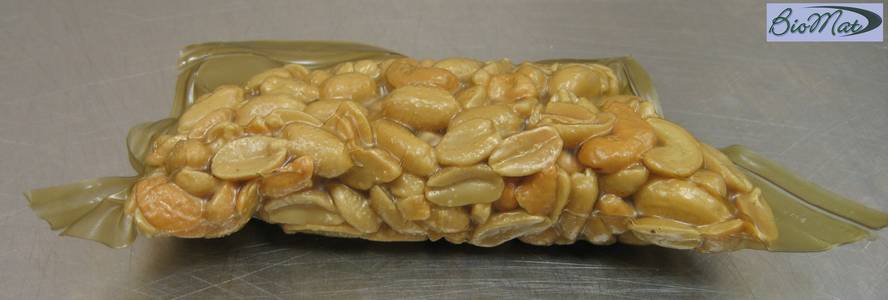Development of a biodegradable membrane for use as food packaging
Based on agroindustrial by-products, the research group BIOMAT of the Polytechnic University School of Donostia-San Sebastián of the UPV/EHU has developed a totally videogram and compostable membrane that serves to thermoseal. The results of the study were published in the scientific journal Journal of Cleaner Production.
Vegetable proteins are renewable and abundant raw materials, easy to obtain from agroindustrial by-products and with suitable properties for application in the field of packaging. In addition, being biodegradable, they offer important advantages from the environmental and economic point of view. Taking into account these characteristics, the research team BIOMAT has manufactured a new membrane for use as food packaging. In addition to being biodegradable and compostable, the new membrane has better protective properties against oxygen and ultraviolet light than current commercial membranes. On the other hand, the researchers highlight that the membrane adheres perfectly to the different surfaces and can be thermally sealed, even on surfaces considered difficult in the packaging industry as polyethylentereftalate (PET). In addition, the mechanical properties of the produced biomembrane and the possibility of sealing are maintained at low temperatures (-20ºC) and does not become hard and fragile membrane, as happens with some conventional membranes.
Pedro Guerrero, professor and researcher of the group BIOMAT, explained that “both in the productive process and in this search for alternative materials respectful with the environment at the end of its useful life, our research has been focused on the development of biodegradable and compostable materials by the valorization of industrial by-products and in the analysis of the environmental charges associated with the product life cycle, from the moment in which the raw materials are obtained until their degeneration.





